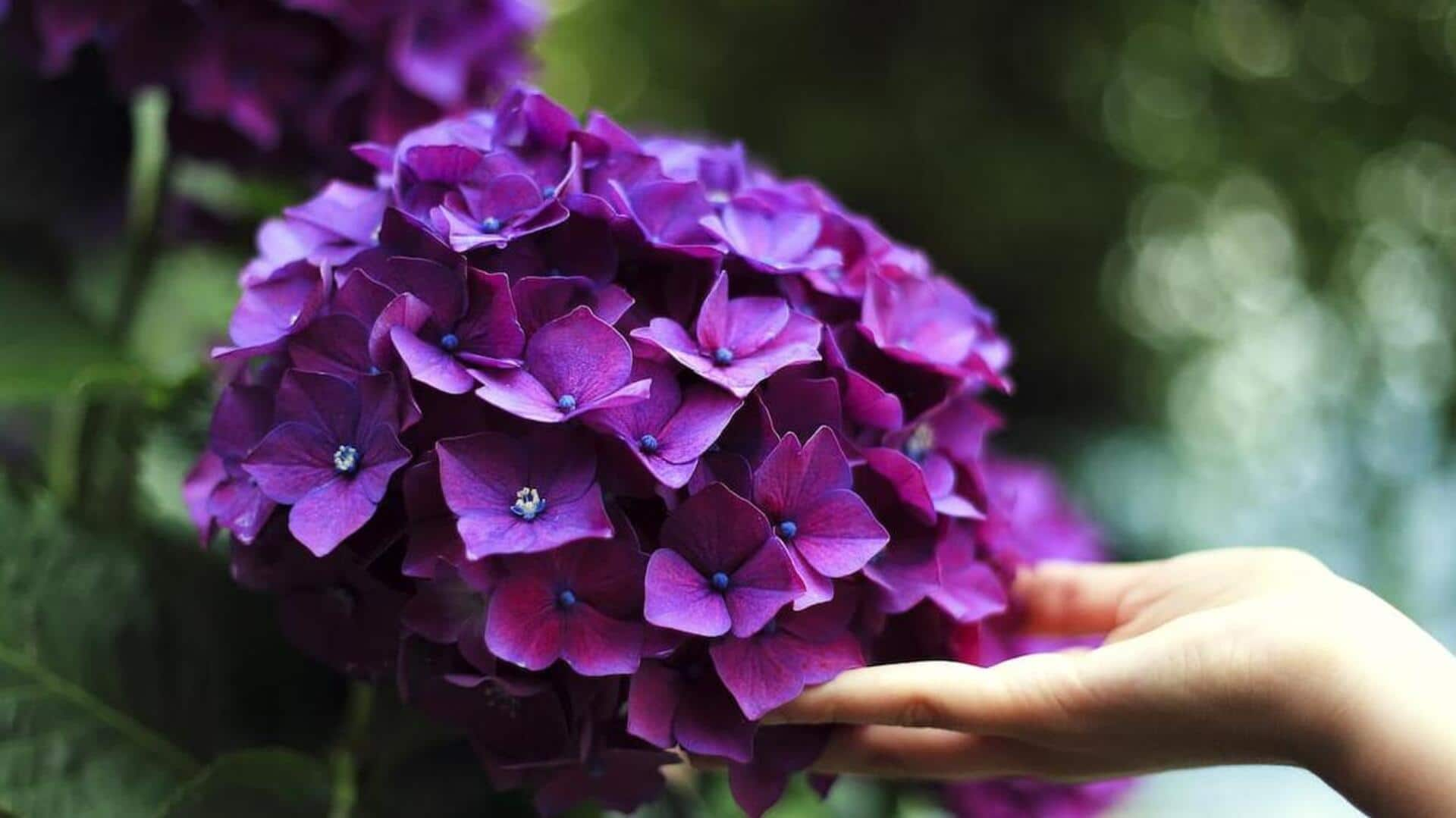
Healthy hydrangeas: 5 effective hydration techniques
What's the story
Hydrangeas are loved for their big, beautiful blooms and can make a gorgeous statement in any garden. However, ensuring they stay healthy and well-watered is key to helping them grow and flower to their full potential. This article uncovers five proven strategies to guarantee your hydrangeas get the perfect amount of water they need to flourish.
Morning watering
Morning watering routine
Watering hydrangeas early in the morning is advantageous because it enables water to penetrate deep into the soil and reach the roots before the day's heat initiates evaporation. By doing so, you avoid wasting water and ensure that your plants have access to the moisture they require during the day when they need it the most.
Mulch application
Mulching matters
Mulching around hydrangeas helps lock in soil moisture by minimizing evaporation. A two- to three-inch layer of organic mulch like shredded bark or leaves not only saves water but also enriches the soil with nutrients as it breaks down. Just ensure to keep mulch a few inches away from the stems of the plant to avoid rot.
Moisture monitoring
Soil moisture check
Before you water your hydrangeas, always check the soil moisture first by sticking your finger about one inch into the ground near the base of the plant. If the soil feels dry at this depth, then it's time to water. Just remember, over-watering is just as bad as under-watering and can lead to root rot and other problems.
Drip irrigation
Efficient irrigation systems
By installing a drip irrigation system, you can enhance hydration efficiency for hydrangeas. It provides water directly to the root zone of your hydrangeas, reducing waste by preventing evaporation or runoff. These systems are especially beneficial in regions with watering restrictions or for those gardeners who want to choose a more eco-friendly option.
Rainwater use
Rainwater harvesting benefits
Rainwater collection: If you collect rainwater in barrels or containers, it provides an excellent, soft, and chemical-free water source for hydrangeas. This method greatly reduces the dependency on tap water, guaranteeing your plants receive natural hydration. It's especially beneficial as it eliminates the presence of chlorine or fluoride common in municipal water supplies, making it a healthier option for your garden's hydration needs.